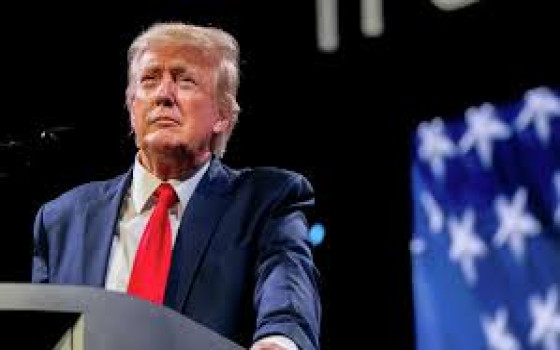
Trump Enforces Ban on Entry to the United States for Citizens of 12 Countries as Part of a Strict Immigration Policy Aimed at Protecting US National Security

- Europe and Arabs
- Monday , 9 June 2025 10:8 AM GMT
Washington: Europe and the Arabs
US President Donald Trump's decision to ban citizens of 12 countries from entering the United States has taken effect. This is part of a strict immigration policy aimed, according to the US administration, at protecting national security and preventing the entry of those suspected of terrorist intentions or those who have previously overstayed their visas.
US President Donald Trump's decision to ban citizens of 12 countries from entering the United States went into effect at 4:01 a.m. GMT on Monday morning, pursuant to a presidential decree that has sparked widespread controversy in legal and political circles. According to the European News Network website in Brussels on Monday morning, the decision, which is part of Trump's escalating campaign to tighten immigration restrictions, is based on an executive order issued on January 20 and aims, according to the White House, to "protect Americans from terrorist threats, extremist ideologies, and the exploitation of immigration laws for malign purposes." In a video clip posted on social media, the Republican president linked the measure to a recent attack in Boulder, Colorado, even though the suspect is Egyptian—a country not on the list.
Who is covered by the ban? And who is exempt?
The ban includes citizens of: Afghanistan, Burma (Myanmar), Chad, Congo Brazzaville, Equatorial Guinea, Eritrea, Haiti, Iran, Libya, Somalia, Sudan, and Yemen. Visa restrictions have also been imposed on seven additional countries: Burundi, Cuba, Laos, Sierra Leone, Togo, Turkmenistan, and Venezuela, due to "shortcomings in vetting systems and refusal to take back their citizens," according to the US administration.
But The order includes exceptions for specific categories, including:
- Permanent resident (green card) holders.
- Dual nationals, including US citizens.
- Athletes participating in international events such as the Olympics.
- Afghans who have received special visas for their cooperation with Washington.
- Iranians from persecuted minorities.
- Children adopted by Americans.
- Diplomats, representatives of international organizations, and official visitors to the United Nations.
- Those with valid visas (with the Department of Homeland Security retaining its right to refuse).
US embassies and consulates were also instructed not to revoke previous visas, but all new applications were required to be rejected starting Monday, except for those who meet the narrow exemption criteria.
Comparison to the "2017 Ban"
The order recalls the so-called "Muslim Ban," which Trump issued at the beginning of his first term in 2017, and included seven Muslim-majority countries. It was met with a storm of protests and legal challenges, until it was upheld by the Supreme Court in 2017. Its revised version was amended in 2018.
Mixed Reactions
The decision received mixed reactions, ranging from categorical condemnation to cautious support. The government of Venezuelan President Nicolás Maduro described the ban as a "systematic vilification of Venezuelans," while Chad announced a suspension of visas for Americans in response. Humanitarian organizations, such as Oxfam America, condemned the measure, describing it as "a tool of discrimination and not a genuine security policy."
In response, Trump emphasized that the ban is subject to modification, and that the countries listed can be removed from the list if they improve their security measures. He noted that the inclusion of new countries remains a possibility as threats around the world increase.,












No Comments Found